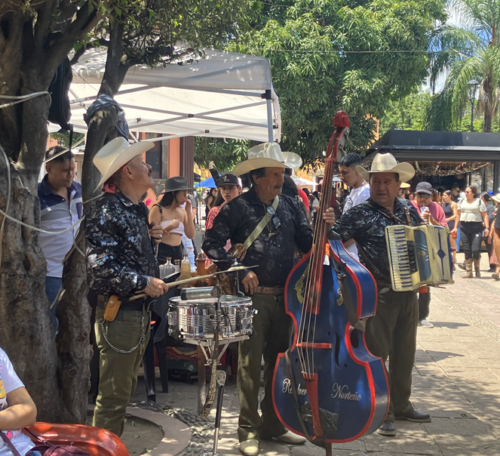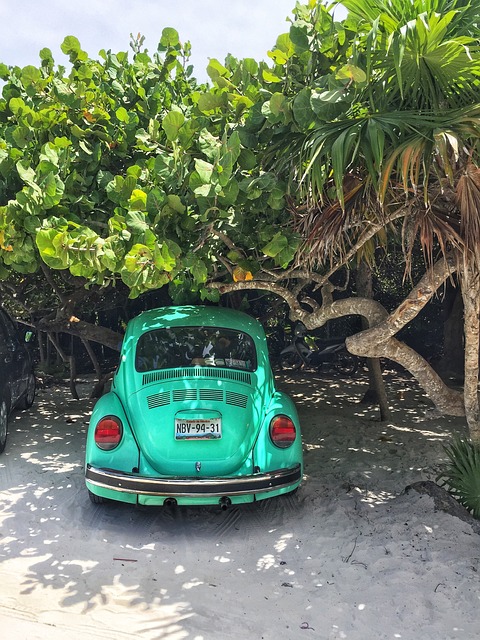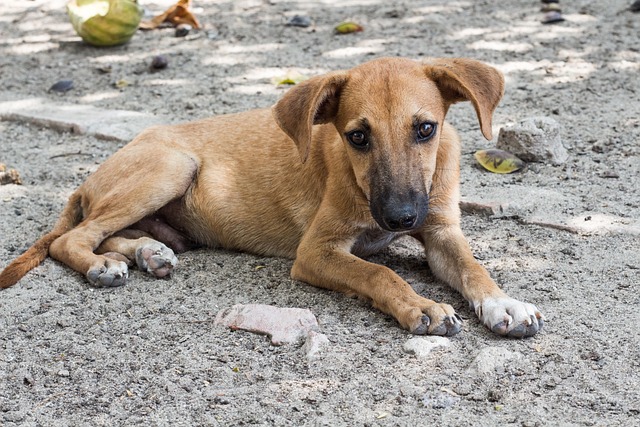Just about everyone knows that you can’t drink tap water in Mexico. But there are a bunch of other surprises in store for the newly arrived expat, or visiting foreign tourist.
Let’s look at a few common surprises for those new to living in Mexico.
1. Most medicines can be bought without a prescription.
For anyone who’s ever had to schedule an appointment to see a doctor in the U.S. solely to get a much-needed prescription, moving to Mexico largely eliminates that problem.

Examples of medicines you can buy over-the-counter in Mexico but can’t in the U.S. are:
- Birth control
- Cholesterol-reducing drugs
- Diabetes drugs, e.g. insulin
- Certain pain-killers, e.g. Paracetemol
- Steroids
- Anti-depressants
There are a few notable exceptions to the rule. Drugs that still require a prescription in Mexico include opioid painkillers (very tightly regulated), antibiotics, and medications for anxiety, e.g. Xanax.
Besides ease of access, some pharmacies regularly offer discounts. National chain Farmacia Similares, which has locations all over Mexico, discounts all medications by 25% every Monday. If you go then, expect a line.
2. Toll roads (cuotas) in Mexico cost more than in the U.S. — sometimes a LOT more
The state of Jalisco recently inaugurated a brand-new toll road between Guadalajara and Puerto Vallarta, which spans 129 kilometers and has reduced travel time between the two cities to about 3 hours from 5 hours previously.
The toll charged for cars to drive this road is $1,066 MXN one way, or roughly USD $55 at current exchange rates. A short trip we drive regularly between Guadalajara and Tequila via toll road 15D costs $193 MXN or roughly USD $10 one way, even though the trip takes a mere 45 minutes.

Though pricey, Mexico’s toll roads are very well-maintained, safe, and never busy, making them an excellent way to tour the country. Just be sure to bring cash — toll booths in Mexico are not yet equipped to accept credit or debit cards.
If you want to avoid costly tolls, you can always join the masses on public roads (libres), but conditions — especially in Jalisco — are generally pitiful, congested, and riskier from a security and safety perspective.
3. Guns are almost impossible for ordinary citizens to buy.
Despite its reputation for violence, Mexico has very strict gun laws for private citizens. While the right to “bear” arms is enshrined in Mexico’s Constitution, it’s not the same as the right to “keep” actual guns in one’s private home based on the Federal Law of Firearms and Explosives passed in 1972.
In practice, most types of weapons are reserved for the exclusive use of the armed forces and police. Of course, organized crime groups have gained access to hard-core weaponry via massive gun trafficking from the U.S., but that’s another matter altogether.
For ordinary civilians (Mexican citizens and legal foreign residents), there’s only one store authorized to sell firearms and ammunition in the entire country. It’s located in Mexico City near the Secretariat of National Defense (SEDENA) headquarters.
Though surprising to those who consume a steady diet of U.S. media, Mexico has low rates of random gun violence, of the sort that plagues the United States. The vast majority of violent incidents involving guns in Mexico occur between cartel members, between cartels and the military/police, and between the cartels and the politicians or journalists who challenge them.
4. Cinco de Mayo is not a thing in Mexico.
Even though Americans associate this margarita-drinking, guacamole-eating holiday with Mexican independence, it is not a real holiday observed in Mexico.
For the record, Cinco de Mayo is significant as the date in 1862 when Mexico defeated Napoleon III’s French troops at the Battle of Puebla. The conflict was triggered by Mexico’s declaration a year earlier that it would temporarily stop payments on its foreign debt, which didn’t go over well in Europe.

Mexico’s real Independence Day is celebrated in mid-September with official ceremonies at the presidential palace in Mexico City, along with music, fireworks, and late-night fiestas nationwide.
5. There is no daylight savings time.
Except along the border zones with the U.S., there is no daylight saving time in Mexico since 2023.

For those of us living in the Central Highlands of Mexico, it results in the bizarre situation where we live six months of the year in Central time and six months in Mountain time.
6. It’s illegal for the police to stop a driver simply to check that their papers are in order.
I learned this fact while studying for the exam to get a Mexican driver’s license. But please don’t expect that law to prevent the police from trying it.
In my first year living in Guadalajara and driving a U.S.-plated car, I was stopped for this reason approximately every two months. Some cops were even so bold as to admit it.

If this happens to you, the police are trying to extract a bribe, nothing more. Your best move is to politely refuse to pay it.
Instead, show them your temporary import permit (TIP) documents and residency visa card while explaining how it all works (because they don’t know), for as long as it takes to convince them you are not an easy mark.
7. Nearly half of all dogs in Mexico live on the streets.
In 2021, the government statistics bureau INEGI reported there were nearly 44 million dogs living in Mexico. And while no accurate measurement of pet ownership in Mexico exists, market research firm Triplethree International estimates that as many as 20 million of these dogs are homeless.
Despite the significant increase in pet ownership over the last few decades, dogs (and cats) are still abandoned in large numbers. In most cases, these animals are forced to fend for themselves on the streets because there are no public animal shelters.

Research by Mars Petcare (the world’s largest pet food company) has found that money is typically not the reason for high abandonment rates. Rather, pet owners’ lack of living space and low commitment to their animals are more often to blame.
Sadly, this mirrors my personal experience. Since moving to Mexico in 2022 we’ve rescued three (going on four) abandoned dogs in our neighborhood. In addition, my social media feed is filled daily with photos of desperate-looking dogs and cats rescued from the streets (mostly by Mexicans) with no homes and no prospects.
Exceptions to the rule are Pugs and Pomeranians, which many locals covet. My neighbor Fernando rescued a wayward pug a few weeks back and had 3 takers in 24 hours! (in the end, we found the owner)
8. Mexican beds are shorter than in the U.S.
Despite having visited Mexico many times before moving here — this one took me by surprise.
U.S. Bed Measurements (in inches)
- Twin: 38″ x 74″
- Full: 54″ x 74″
- Queen: 60″ x 80″
- King: 76″ x 80″
- California King: 72″ x 84″
Mexican Bed Measurements (in meters & inches)
- Individual: 1.00 m x 1.90 m [39.4″ x 74.8″]
- Matrimonial: 1.35 m x 1.90 m [53.2″ x 74.8″]
- Queen: 1.50 m x 1.90 m [59.1″ x 74.8″]
- King: 1.90 m x 2.00 m [74.8″ x 78.7″]

If you bring fancy, high-thread count sheets from the U.S. with you (a good idea as they’re super pricey here), it can make fitting them on beds purchased in Mexico a little tricky. Plus, if you’re over 6 feet tall, Mexican beds may not be comfortable at all, since your feet are always hanging off the end.
For more insights into what to bring with you when relocating to Mexico (and what to leave behind), check out my previous post Bring this, not that.
9. Toilet paper goes into a trash can, not the toilet.
Mexican plumbing is not as robust or well-maintained as in many industrialized countries. So when using a toilet in Mexico, paper is put in the trash can adjacent to the toilet to avoid clogging pipes.
While this practice isn’t universal — newer apartment buildings, fancy sports clubs, and luxury hotels sometimes don’t observe this practice because they have modern plumbing and cater to the beau monde — it’s the convention upwards of 90% of the time.
Better safe than sorry, I say.
10. It’s illegal for merchants to sell alcohol on election days.
Mexican authorities want their citizens to take their civic responsibility seriously. (and by all accounts they do, based on a turnout rate of roughly 60% in the 2024 presidential election)
Because of the “ley seca” (dry law) stores, bars, and restaurants in Mexico are typically not allowed to sell or serve alcohol the day before, and the day of a federal election. I say “typically” because we’ve noticed that in tourist-heavy areas the rules sometimes get bent to cater to foreign visitors.

But if you live in a more typical area you can plan on the ley seca being observed to ensure sobriety during elections. And while I agree that drinking and voting don’t mix, drinking after voting just might be – depending on the result.
Bonus thing for U.S. visitors (estadounidenses) only:
For expats accustomed to measuring things in pounds, feet, and miles, arriving in Mexico to discover that all measurements use the metric system can be a bit jarring.
Figuring out furniture dimensions, your biometrics (for immigration forms), or ingredient quantities while cooking — in meters, kilos, and grams, can take some getting used to. Fortunately, you can do these conversions quite easily on your smartphone.

